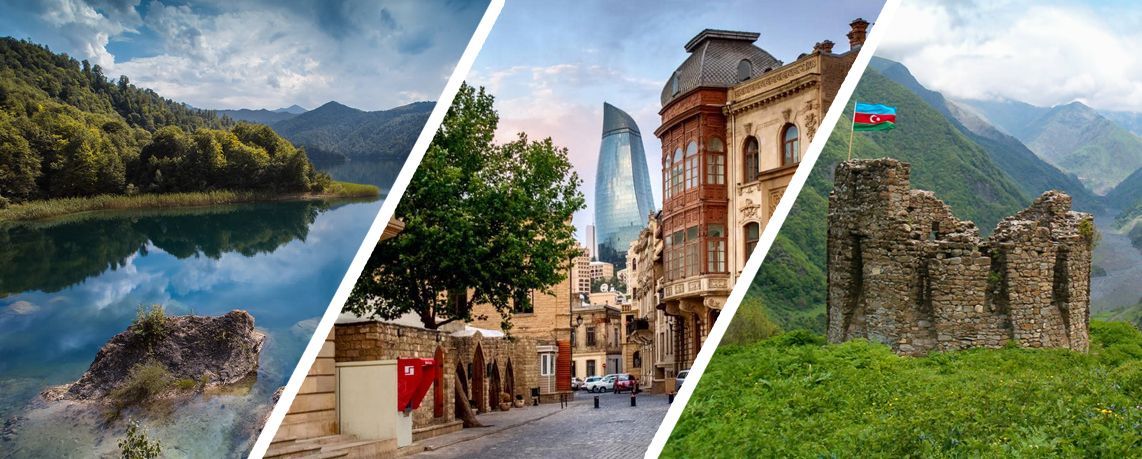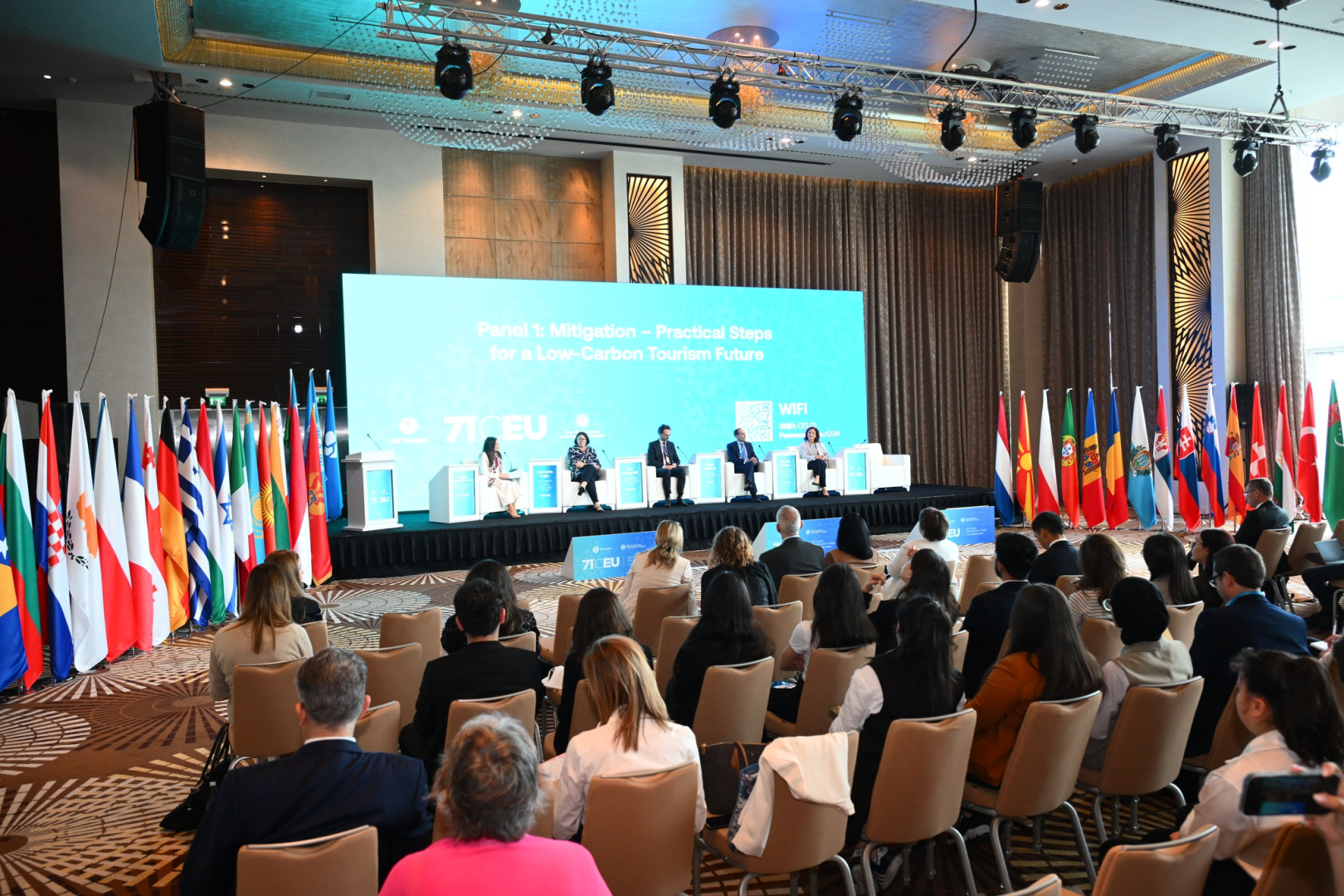Azerbaijan’s tourism revival blends investment vision and international engagement

Azerbaijan is rapidly emerging as a key player in the European tourism landscape, following a year of exceptional growth and increasing international recognition. The country recorded a 25.9% rise in inbound tourism in 2024—more than double the global average—reflecting its rising appeal as a destination that blends Eastern traditions with European connectivity.
These developments were at the heart of the 71st meeting of the UNWTO European Regional Commission, held in Baku from 4 to 6 June 2025. The event brought together senior tourism policymakers and international stakeholders, marking a major diplomatic and sectoral milestone for Azerbaijan. During the session, the State Tourism Agency officially presented Azerbaijan’s candidacy for the Executive Council of the Commission for the 2025–2029 term, reaffirming its commitment to shaping the regional tourism agenda.

Fuad Nagiyev, Chairman of the State Tourism Agency, noted that Azerbaijan has served on the Executive Council three times previously, including as chair in 2017. “This year, we are putting forward our candidacy again, and we look forward to continued cooperation and fruitful joint efforts in the years ahead,” he stated. Azerbaijan, a member of the Commission since 2001, is now among nine countries vying for five open seats on the Executive Council, alongside Kazakhstan, Uzbekistan, Greece, and others.
The Baku meeting followed a series of strategic engagements with the UNWTO, including consultations held during FITUR 2025 in Madrid and follow-up discussions at the UNWTO headquarters. The final decision to convene the 71st session in Azerbaijan was made in April during the Commission’s 70th meeting in Tirana, Albania.
Tourism as a national priority has gained new momentum in Azerbaijan, driven by a combination of infrastructure upgrades, international partnerships, and post-pandemic recovery strategies. According to the State Tourism Agency, the sector contributed 4.5% to national GDP in 2024, and a steady upward trend is expected to continue into 2025.
One of the most notable achievements is the country’s reintegration of newly liberated territories into its tourism classification system—opening up new potential for cultural, ecological, and historical tourism development. In Shusha, cultural heritage restoration is being paired with the creation of new hospitality infrastructure, while Lachin and Kalbajar are being positioned for eco-tourism and adventure travel. Local governments, in cooperation with the State Tourism Agency, are also working on trail networks, guesthouse certification programs, and regional festivals to promote these areas. The government has emphasized the importance of ensuring that tourism development in these territories is sustainable, inclusive, and respectful of the region’s natural and historical character.
Azerbaijan has also expanded direct air routes, simplified e-visa procedures, and enhanced its marketing campaigns, particularly targeting the European market. These efforts are complemented by growing cooperation with EU institutions and member states. In recent years, Azerbaijan has signed or renewed tourism cooperation agreements with countries such as Hungary, Bulgaria, and Italy, focusing on mutual promotion, rural tourism, and joint cultural itineraries. Participation in EU-supported programs such as “Eastern Partnership Tourism” has further aligned Azerbaijan’s policies with European standards, particularly in sustainable tourism and digitalization.
The private sector has played a pivotal role in this resurgence. International hotel brands—including Marriott, IHG, and Accor—have announced plans to open new properties in Baku and regional hubs. Meanwhile, domestic tourism startups and tour operators have begun offering innovative experiences such as wine trails, culinary tours, and digital nomad packages. The government has supported this growth through public-private partnership initiatives, including incentive schemes for SMEs and investment in tourism zones like Shahdag and Tufandag.
Recognizing the importance of human capital, Azerbaijan has also stepped up efforts in tourism education and workforce development. Baku has become a center for hospitality training, with institutions such as the Azerbaijan Tourism and Management University (ATMU) partnering with international programs backed by UNWTO. Plans are in motion to create regional training centers in liberated territories to build local capacity, especially in hospitality, tour guiding, and environmental management. The launch of new certification programs and internships aims to create a new generation of tourism professionals aligned with global standards.
In 2024, the number of tourists from EU countries reached 112,300—an increase of nearly 35% compared to the previous year. This rebound reflects Azerbaijan’s long-term strategic engagement with European audiences, which saw a previous high point in 2019 with 3.2 million total arrivals and 224,000 from Europe alone.
The COVID-19 pandemic and regional instability had significantly slowed tourism flows in subsequent years, but Azerbaijan has since recovered more than 80% of pre-crisis levels. In total, 2.627 million foreign nationals and stateless persons from 196 countries visited Azerbaijan last year, spending over $5.1 billion in the country.
Recent figures from the first five months of 2025 further support the country’s upward trajectory. Acting Head of the State Tourism Agency’s Office, Kanan Guluzade, reported that 979,963 foreign tourists visited Azerbaijan between January and May. The overall growth rate for this period was 1.5%, rising to 2% in May—an early sign of a strong upcoming summer season.
Azerbaijan’s tourism diplomacy has also embraced global sustainability efforts. During COP29, hosted in Baku, the country played a pioneering role in bringing tourism onto the climate agenda. The “COP29 Declaration on Strengthening Climate Action in Tourism,” supported by over 70 countries, underscored Azerbaijan’s leadership in aligning tourism growth with the Glasgow Declaration on Climate Action.
UNWTO Executive Director Natalia Bayona, speaking in Baku, praised Azerbaijan for its balanced approach to tradition, innovation, and global cooperation. “Azerbaijan has shown itself to be a reliable and effective partner, proudly preserving its heritage while leading on major UN initiatives,” she said.
Looking ahead, Azerbaijan plans to deepen cooperation with UNWTO, expand tourism education programs, and submit a formal application under the “Best Tourism Village” initiative. As a strategic bridge between Europe and the broader region, Azerbaijan appears well-positioned to influence regional tourism policy while maintaining its unique cultural identity.
Here we are to serve you with news right now. It does not cost much, but worth your attention.
Choose to support open, independent, quality journalism and subscribe on a monthly basis.
By subscribing to our online newspaper, you can have full digital access to all news, analysis, and much more.
You can also follow AzerNEWS on Twitter @AzerNewsAz or Facebook @AzerNewsNewspaper
Thank you!

